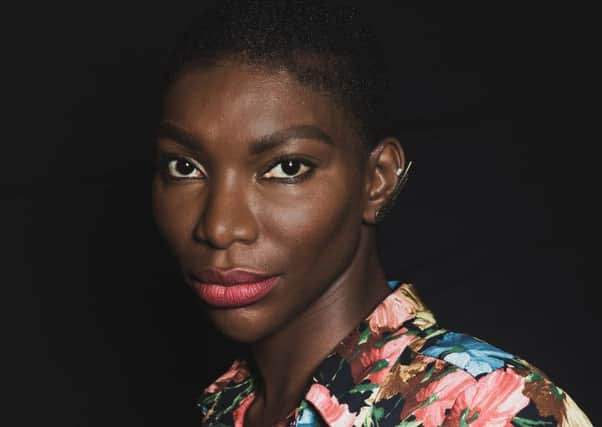Actress tells Edinburgh TV Festival she was sexually assaulted


Michaela Coel spoke out in front of hundreds of industry figures about being attacked while working on Chewing Gum, her BAFTA-winning comedy Chewing Gum.
She recalled the pressure she came under after being raped by strangers when she went out for a drink with a friend after working late one night.
Advertisement
Hide AdAdvertisement
Hide AdCoel, only the fifth woman to deliver the prestigious MacTaggart Lecture, recalled one work-place incident of finding all the non-white actors on set confined to one trailer, while a white actor was given an entire trailer to themselves.
She said: “I’ve never accused anyone at work of racism but I’ve been urged to understand someone “isn’t racist” on every job I’ve acted in since, just by pointing out possible patterns, tendencies.”
Coel, 30, spoke out at the festival hours after it was announced that she would be writing and starring in a major new London-set TV drama which will explore the issue of sexual consent. The BBC said the “fearless, frank and provocative series” would look at the distinction between liberation and exploitation “in the new landscape of dating and relationships.”
Recalling her own attack, which happened when she was hours away from a pressing deadline, Coel said: “I was working overnight in the (production) company’s offices.
Advertisement
Hide AdAdvertisement
Hide Ad“I had an episode due at 7am. I took a break and had a drink with a good friend who was nearby. I emerged into consciousness typing season two, many hours later. I was lucky. I had a flashback. It turned out I’d been sexually assaulted by strangers. The first people I called after the police, before my own family, were the producers. How do we operate in this family of television when there is in an emergency?
“Overnight I saw them morph into an anxious team of employers and employees alike, teetering back and forth between the line of knowing what normal human empathy is and not knowing what empathy is at all.”
Coel said she had asked for her deadline to be pushed back and for her employers to be “informed as to why”, and that her request was met.
She added that the production company she worked with sent her to a private clinic, “a service they offer to staff when in need”, and that they also funded therapy.
Advertisement
Hide AdAdvertisement
Hide AdCoel said: “Like any other experience I’ve found traumatic, it’s been therapeutic to write about it, and actively twist a narrative of pain into one of hope, and even humour.
“And be able to share it with you, as part of a fictional drama on television, because I think transparency helps.”
Ian Katz, Channel 4’s director of programmes, described Coel’s lecture as “a powerful and important wake-up call.”
“The experiences she has described in her lecture are not what we would want for anyone working with Channel 4 or any part of our industry.
Advertisement
Hide AdAdvertisement
Hide Ad“She has opened an honest debate about how we ensure that writers and performers, whatever their backgrounds, feel respected and heard.
“We want an industry that truly celebrates difference and is accessible to all, so broadcasters and producers now need to work in partnership to act on the issues she has raised.”
Sarah Ward, national secretary of the BECTU Union, said: “We’re still hearing of far too many experiences of sexual harassment across the industry.”